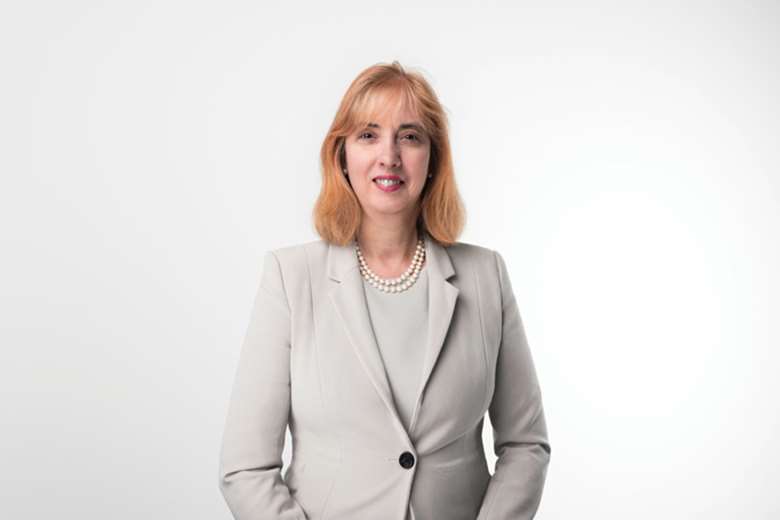Champion for children's rights: Carol Homden, Coram chief executive
Derren Hayes
Monday, September 23, 2019
Derren Hayes talks to Carol Homden, chief executive of Coram.

Carol Homden has been chief executive of charity Coram for more than a decade. During her tenure, Coram has grown to become a group of specialist charities providing services and shaping policy across early years support, education, social care and children's rights. The charity, which celebrates its 350th anniversary this year, has recently been at loggerheads with ministers over their decision to scrap the Adoption Register for England that helped match hard-to-place children and which Coram ran for the Department for Education.
The government said online systems could do the job of the adoption register more effectively. Do you understand why ministers scrapped it?
It is mystifying. I was assured it was not about money, although the cost of the service was met by just one child being placed - in terms of the lifetime care costs.
I cannot see how it is in children's interests. I applaud the notion there needs to be more innovation and investment in looking at digital solutions and use techniques that are successful in adoption and fostering. It is why we are pioneering innovative work in matching across the continuum. For example, giving 10- to 15-year-olds an opportunity to be involved in choosing their placement, and finding foster carers prepared to take on children who are looking to step down from residential care or who have had multiple placements. If you find the spark of shared interest, then they [placements] may last longer. We will be evaluating that over the years to come.
The closure seemed a strange move when numbers of adoptions are going down?
Analysis shows the system does not match all the children that it should or could. That's not acceptable and chances have been lost to [place] children. I hope that once mature, the regionalised adoption agency system can do better, but I don't see any reason to think it will.
I'd urge the government to reconnect with the need for a service that helps children across boundaries, not a system, that's just the prerequisite of knowing where all the children are. Would we allow a school to operate without a register of children that are in it? There needs to be a fundamental requirement - which is inspected - for children to be on that register just as there is for a child in school.
Adopters are dispersed and distributed in their demography - there will never be a time when all the children who need to be matched will be matched regionally. Children need to have quick access to every available option.
Protecting children's rights is one of Coram's key themes. Where do you see that being under threat?
We are acutely aware that schools are not ready for the advent of statutory relationship and sex education. It is critical for people's readiness for adolescence, to form healthy relationships and have the skills to exercise positive choice. I'm concerned that schools need clear and positive messages and practical guidance about how to deal with these complex issues. It is very difficult for schools to navigate between the needs and rights of their children and the views of parents, particularly if those are exacerbated and polorised by high-profile cases. Society has chosen to enshrine certain rights for all of our citizens; they are in law and it is a child's entitlement to access them.
What can be done to help schools deliver statutory relationship and sex education?
We need some clear statements from the top and all through the system, and recognition that society does change and at the base of it are entitlements and values. It's not new for schools to struggle with sex education. It should also be that no school can be "outstanding" if it's poor at personal, social, health and economic education, so schools need to be given the space to have that discourse.
You are also chair of the National Autistic Society. Where does this interest come from?
I'm a parent of a son with complex needs, he's autistic with a learning disability and behavioural challenges. He will live his life with those; they can either be well or badly managed. It is inexcusable that a child like him should still experience two periods of permanent exclusion from school with no education support, and a placement 150 miles from his home. Individual problem solving needs to be supported by proper and effective practice, supervision and processes that are tenacious and ambitions.
Provision for special educational needs and disabilities in school is struggling with rising demand. What should be done to resolve this?
We must ask is what is happening to the recommendations of the Timpson review of exclusions. In one sweep they were accepted, but let's not allow that to be on the shelf.
The vast majority of schools are working hard to balance the needs of all of their children. For some children mainstream school is not possible or aligned to their particular challenges. Other pupils have a right to a fear-free environment. But it needs to be thought of as a doorway into support rather than to the unknown.
Actions do have consequences and exclusion may be necessary in some cases. We are concerned about the lack of support for children and parents in that process. Being sent home books or a couple of hours' tuition a week does not constitute a continuation of an education; equally we must ask how parent and teacher communication can be improved.
Carol Homden CV
- 2007-present Chief executive, Coram
- 2011-present Chair of trustees, National Autistic Society
- 2003-07 Commercial director, The Prince's Trust
- 1999-03 Director of marketing and public affairs, The British Museum
- 1986-99 Director of marketing and development, University of Westminster




